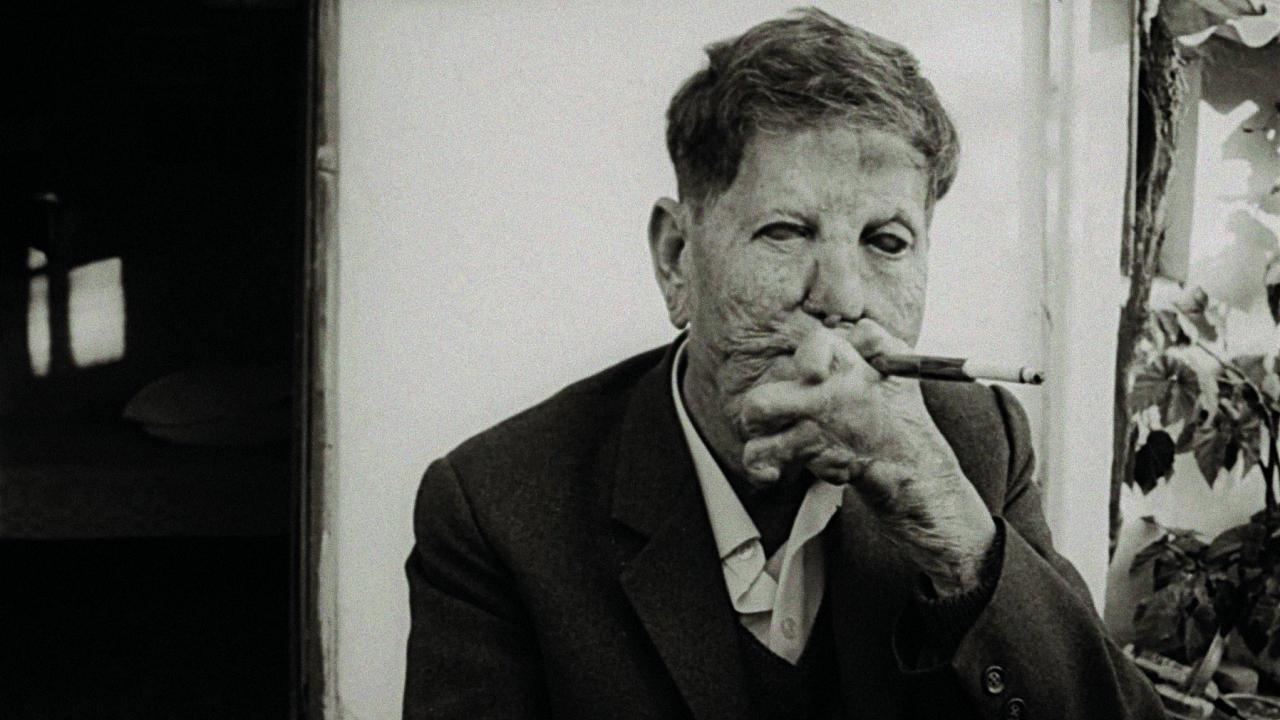Prisma #55

I chance to rewatch L’ordre (Jean-Daniel Pollet, Malo Aguettant and Maurice Born, 1973). Of all the voices I hear in the film, that of Epaminondas Remoundakis (E.R.) still exudes an undiminished anger. The very singular timbre of this voice is like a razor slicing through an eyeball, its range and cadence suggesting the terrible violence inflicted upon all those who – like E.R. – were lepers.
Hunted, chased from Athens where he was studying law, this survivor (like so many other lepers since 1904) was forcibly kept in seclusion for 36 years on the isle of Spinalonga, Crete. Banished from the world, he stares into the camera, eyes whitened by blindness. J-D Pollet shoots him head-on, in close-up. Pollet will say that he only understood his witness’ biting words later, during editing. But make no mistake: in L’ordre, even before you understand the Greek or read the subtitles, the sound of this voice is already pain and revolt, rage and indignation, cry and appeal. I like to believe that it is precisely this hoarse voice – the dissonant music of an injustice become sound wave, the trace and expression of real life – which directs J-D Pollet’s mise en scène. I like to believe that it is this same voice which radiates the restless camera that I watch roaming about, and which transforms the spaces it films into labyrinths of pain.
The island of Spinalonga ceased to be an open-air prison in 1957. By 1973, E.R.’s indignation was still burning hot. Facing J-D Pollet, he deploys his words like a fencer with a foil, giving a poignant account of his existence as one sentenced to life imprisonment despite having committed no crime. His analysis of the outside world – ours – is uncompromising. How his invectives fly! “One day,” he says, “you yourself will become detergent and live amid trash”.
This voice – sonic form of a singular body – never ceases to proclaim the degree to which the injustice suffered by all lepers, by all sick people, is a wound that the world has inflicted upon itself.

